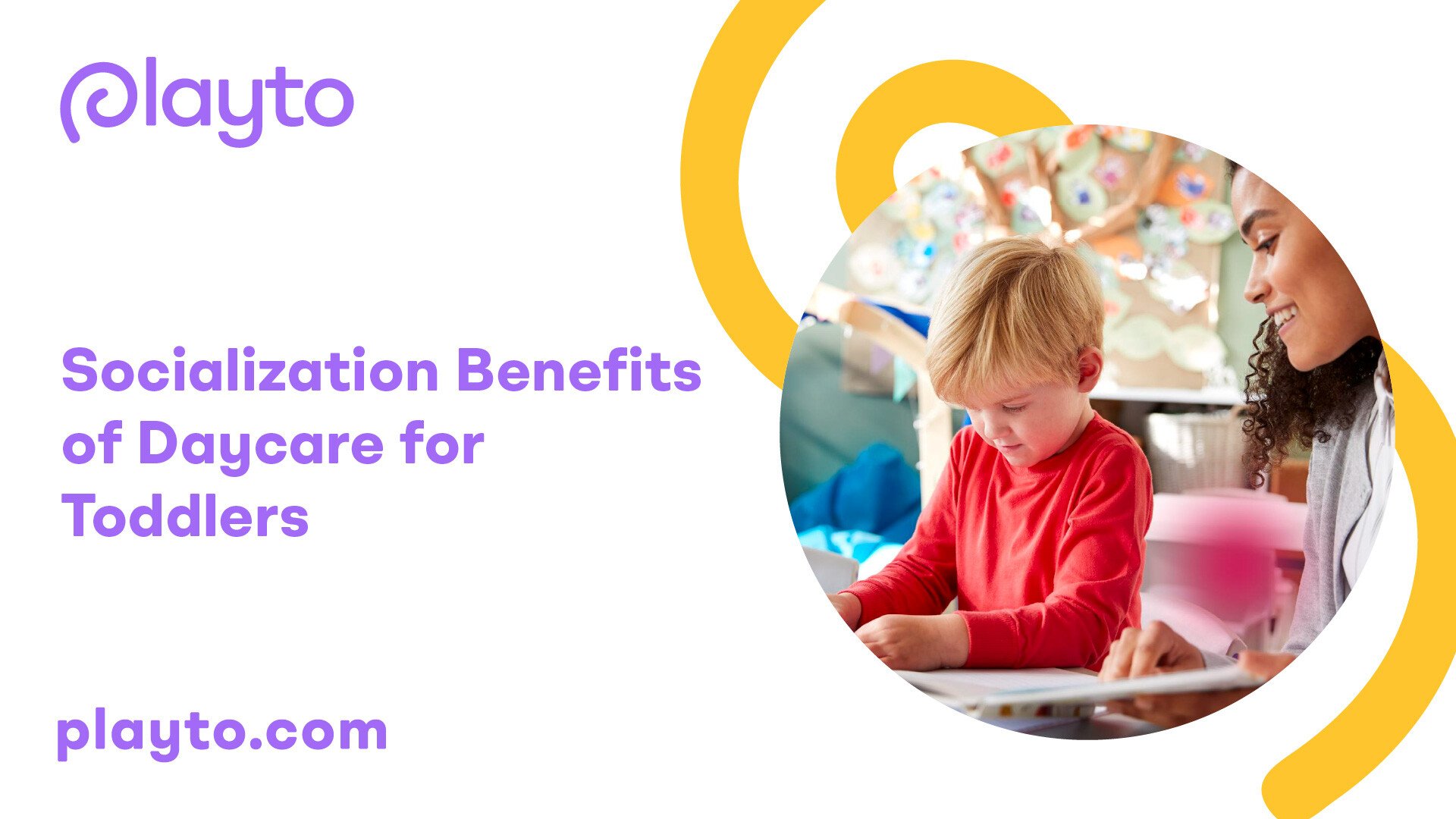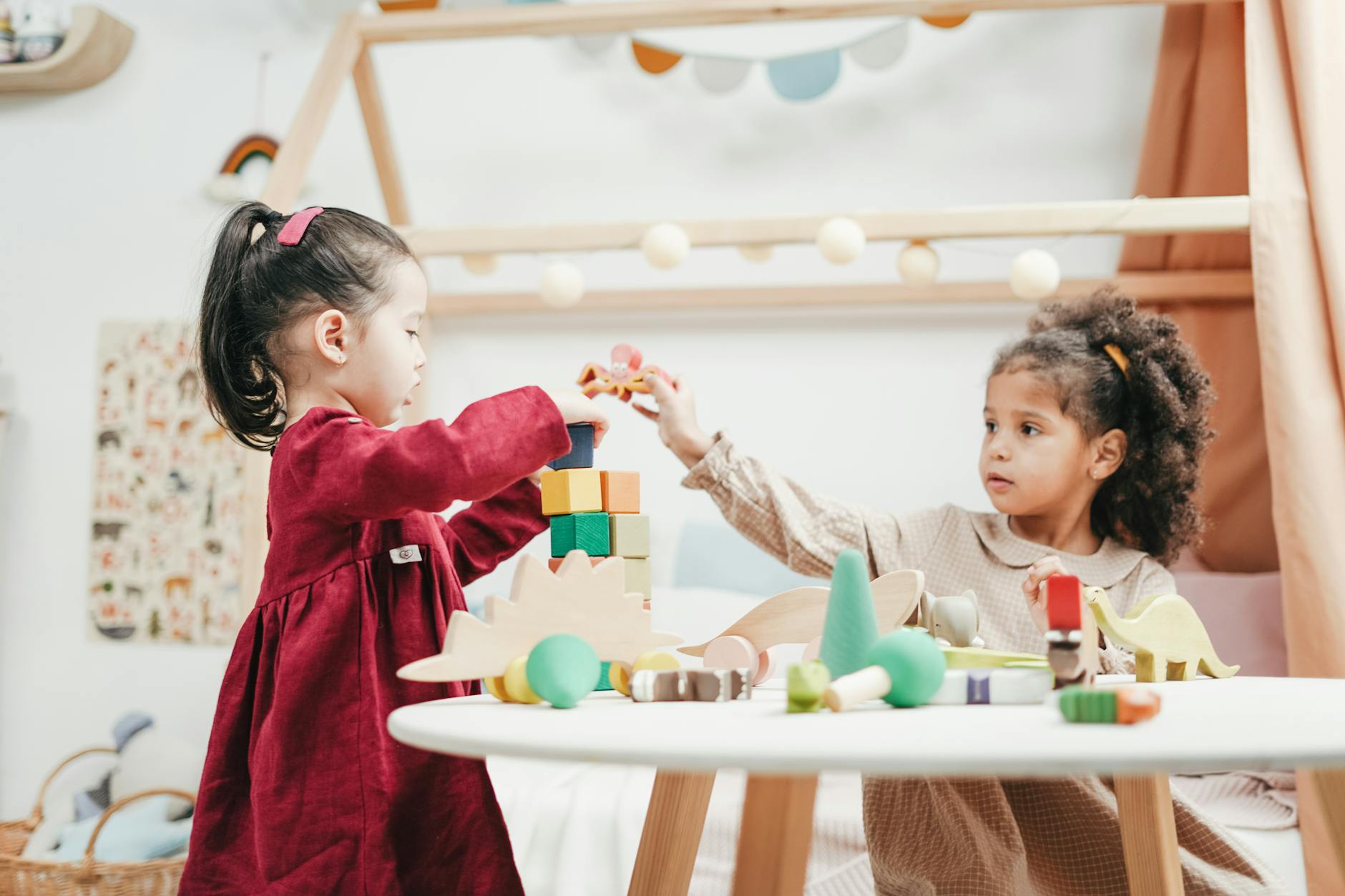Socialization Benefits of Daycare
When it comes to the social development of toddlers, daycare plays a significant role. Let's explore the impact of family versus daycare, language development in daycare, and the quality of daycare centers.

Impact of Family vs. Daycare
While both the family environment and daycare have an impact on a child's development, studies indicate that parent-child interactions at home have a more significant influence than daycare factors [1]. The home environment, enriched with love, support, and stimulating interactions, sets the foundation for a child's overall development. Nonetheless, quality daycare can complement and enhance a child's socialization experiences.
The optimal time for a child to start daycare may vary depending on socioeconomic status (SES). Children from lower SES families may benefit from starting daycare earlier, while children from higher SES families may benefit from starting later. The enriched home environment plays a significant role in determining the optimal time to introduce daycare [2].
Language Development in Daycare
Language development is a crucial aspect of a child's socialization. Studies have shown that the language used by caregivers in daycare settings is a significant predictor of a child's cognitive and language outcomes [1]. Exposure to a diverse range of words and communication with various people in early childhood aids in the development of language skills. Childcare centers often incorporate language arts curriculum, including activities like storytime and dramatic play, to enhance verbal expression skills.
Quality of Daycare Centers
The quality of daycare centers plays a crucial role in determining the socialization benefits for toddlers. Regulated and high-quality daycare centers tend to provide more positive caregiving, leading to greater benefits for children [1]. High-quality daycare centers focus on building problem-solving and reasoning skills in children, encouraging them not to give up when facing difficulties and helping them develop strategies to solve academic and social problems.
Choosing a daycare center that emphasizes socialization, communication, and quality interactions can provide your toddler with a nurturing environment for their social development. It's important to consider the reputation, curriculum, and caregiver-child ratios when selecting a daycare center. By providing opportunities for social interaction and quality care, daycare centers contribute to the socialization and overall development of toddlers.
Developmental Benefits
Enrolling toddlers in daycare can have profound developmental benefits, encompassing social and emotional growth, cognitive development, and setting the stage for academic success.

Social & Emotional Growth
High-quality daycare centers play a crucial role in fostering social and emotional growth in toddlers. According to Cadence Education, enrollment in a reputable daycare center can lead to higher levels of empathy, resilience, and prosocial behavior later in life. Through play and interactions with peers and caregivers, children learn positive social skills such as sharing, turn-taking, negotiating, and positive communication. These experiences in a daycare setting provide children with the opportunity to develop meaningful connections and build relationships, which significantly contribute to their social and emotional development.
Cognitive Development
Daycare centers also contribute to the cognitive development of toddlers. The structured routines, stimulating environments, and engaging activities offered in high-quality daycare programs lay the foundation for cognitive growth. Through age-appropriate play, sensory experiences, and guided exploration, children's cognitive abilities, including problem-solving, critical thinking, and memory, are nurtured.
Academic Success
Quality daycare and early childhood programs have a documented positive impact on children's long-term academic success. According to Cadence Education, students who attend high-quality programs are more likely to graduate from high school and attend college. Early childhood education programs set the stage for later schooling, including higher education. The exposure to structured learning activities, early literacy and numeracy experiences, and social interactions with peers and educators in daycare centers contribute to the development of essential skills and knowledge that support academic achievement.
By providing a nurturing and stimulating environment, daycare centers offer toddlers the opportunity to grow socially, emotionally, and cognitively. These developmental benefits lay a strong foundation for future success, both academically and in various aspects of life. To learn more about the benefits of daycare and how it supports working parents, explore our article on how daycare supports working parents.
Communication Skills
Effective communication skills are essential for toddlers' social and emotional development. Daycare environments provide consistent opportunities for children to interact with others, fostering the development of communication skills through day-to-day interactions and developmentally-appropriate activities. These interactions help children build meaningful connections with caregivers and peers, significantly contributing to strengthening their communication skills.

Interaction Opportunities
In daycare settings, children have numerous opportunities to engage in various forms of communication. They learn to express their needs, wants, and emotions through verbal and non-verbal means. Engaging in conversations, listening to stories, participating in group activities, and playing with other children all contribute to the development of language and communication skills.
Child care centers often incorporate language arts curriculum, including activities like storytime and dramatic play, to enhance verbal expression skills. These structured activities, along with informal interactions, help toddlers expand their vocabulary, improve their articulation, and develop their ability to convey their thoughts and ideas effectively.
Strengthening Connections
Meaningful connections with caregivers and peers play a crucial role in the development of communication skills. In daycare, children have the opportunity to interact with adults other than their parents, such as teachers and caregivers. These interactions provide exposure to different communication styles and help children learn to adapt their communication in various social contexts.
Child care centers also play a role in teaching children to respect authority figures other than their parents, helping them understand the consequences of not following instructions and respecting authority. This learning experience contributes to socialization and behavioral development in young children.
By engaging in conversations, participating in group activities, and building connections with caregivers and peers, toddlers in daycare settings develop their communication skills. These skills are essential for establishing positive relationships, expressing their needs and emotions, and navigating social interactions effectively.
Independence & Confidence
Daycare centers play a significant role in promoting the independence and confidence of toddlers. Through various activities and interactions, daycare programs encourage competence and build self-assurance in young children.
Encouraging Competence
Quality daycare programs focus on supporting children's competencies and capabilities, allowing them to develop a sense of mastery and accomplishment. By providing an environment that nurtures their skills and abilities, daycare centers foster a sense of competence in toddlers. This is achieved through activities that are age-appropriate and encourage the development of various skills, such as problem-solving, decision-making, and self-help skills.
Daycare professionals create opportunities for toddlers to engage in hands-on activities that challenge and stimulate their curiosity. These activities are designed to gradually increase in complexity, allowing children to develop a sense of independence as they successfully complete tasks. By experiencing small successes, toddlers gain confidence in their ability to tackle challenges and develop a belief in their own capabilities.
Building Self-Assurance
Building self-assurance is an essential aspect of a toddler's development, and daycare centers provide a supportive environment for this growth. Through positive reinforcement and encouragement, daycare professionals help children overcome obstacles, develop resilience, and build self-esteem.
By celebrating the achievements of toddlers, whether big or small, daycare centers foster a sense of pride and confidence in their abilities. This positive feedback creates a nurturing environment where children feel safe to explore, take risks, and express themselves. The support and guidance provided by caregivers and teachers in daycare centers contribute to the development of a strong foundation for future endeavors.
By participating in group activities and interacting with peers, toddlers in daycare centers also learn valuable social skills. These interactions help them develop confidence in their ability to communicate, cooperate, and form relationships with others. Such experiences enhance their overall independence and self-assurance.
Quality daycare programs recognize the importance of encouraging competence and building self-assurance in toddlers. By providing opportunities for children to develop and showcase their skills, daycare centers play a vital role in fostering independence and confidence, laying a strong foundation for their future growth and success.
For more information on daycare, check out our related articles on how daycare supports working parents, dealing with separation anxiety in daycare children, nutrition guidelines for daycare centers, and the importance of outdoor play in daycare settings.
Behavior in Daycare
One of the aspects to consider when discussing the socialization benefits of daycare for toddlers is the effect of the number of hours spent in daycare on a child's behavior. Research suggests that the number of hours spent in daycare can have both positive and negative effects on a child's behavior.
Effects of Hours Spent
According to a study cited in Medium, the number of hours a child spends in daycare can impact their behavior. The study found that compared to 15-30 hours of daycare per week, spending 30+ hours per week before the age of 4 does not provide cognitive benefits but increases the likelihood of children acting out and being angry when they start school. It is important to note that the effects of hours spent in daycare vary depending on the child's age. Placing 6-month-old children in daycare for long hours has been found to have a particularly large negative effect on later behavior.
Behavioral Outcomes
Studies have shown that children who have attended daycare may exhibit differences in behavior compared to those who have not. According to research cited in Medium, children who had attended daycare were rated by their teachers as having higher anger and aggression scores compared to those who had not. On the other hand, children who had not attended daycare were rated as having more internalizing behaviors. These behavioral characteristics seemed to account for the differences found in the tendency to engage in prosocial behaviors in response to peer requests.
Additionally, another study mentioned in NCBI found that children who had attended daycare were significantly less likely to engage in prosocial behaviors in response to implicit and explicit requests from other children compared to those who had not.
It's important to note that the quality of the daycare setting can also influence a child's behavior. Higher quality daycare settings have been found to result in smaller rises in cortisol levels, a stress hormone, and have smaller effects on behavior, as mentioned in Medium.
Understanding the potential effects of hours spent in daycare on a child's behavior can help parents and caregivers make informed decisions when it comes to selecting the right daycare arrangement for their child. It's crucial to consider factors such as the child's age, the quality of the daycare center, and the child's individual needs to promote positive behavioral outcomes. For more information on daycare and its impact on children, explore our article on how daycare supports working parents.
Supervision in Daycare
Ensuring proper supervision in daycare is vital for the safety and well-being of toddlers. Active engagement and ensuring safety are two key aspects of supervision that contribute to a positive daycare experience.
Active Engagement
Active engagement refers to the practice of caregivers actively interacting and engaging with the children under their supervision. This approach not only ensures their safety but also promotes their social and educational development. By actively participating in children's activities, caregivers can create an ideal learning environment where children can explore, be curious, and develop their independence while still having the security of someone overseeing their well-being.
Ensuring Safety
The supervision provided during routine care activities is essential for keeping infants and toddlers safe in daycare settings. Caregivers actively observe and interact with children during tasks such as meals, diapering, toileting, arrival, departure, and napping to prevent accidents and injuries.
Maintaining appropriate caregiver-to-child ratios is crucial for optimizing care and ensuring the safety of infants and toddlers. National accrediting organizations recommend ratios of at least 1:4 for children ages birth to 15 months and 1:6 for children ages 21 to 36 months. Additionally, maximum group sizes are specified for each age group to ensure that each child receives adequate attention and supervision.
By actively engaging with children and maintaining a safe environment, daycare centers prioritize the well-being and development of toddlers under their care. Proper supervision provides parents with peace of mind, knowing that their children are in a secure and nurturing environment while they attend to their daily responsibilities. For more information on how daycare centers support working parents, you can check out our article on how daycare supports working parents.
